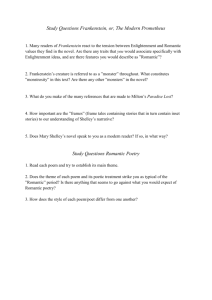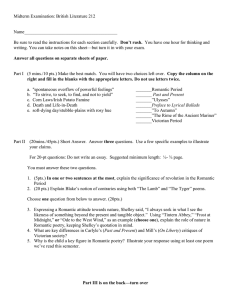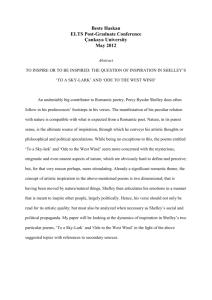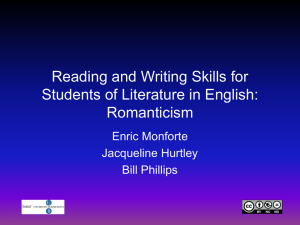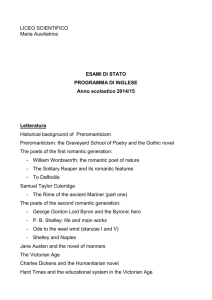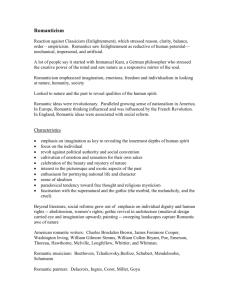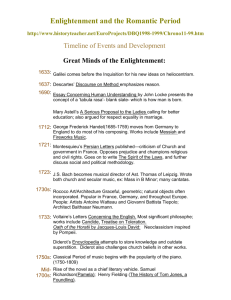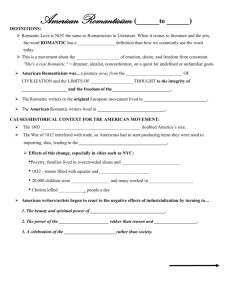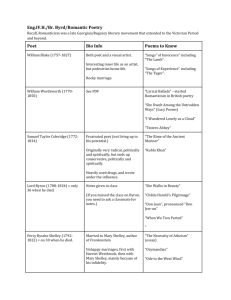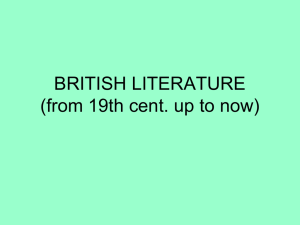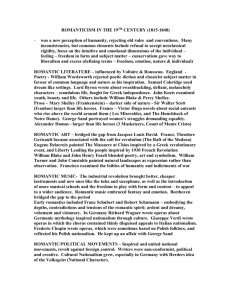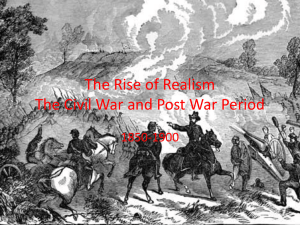The romantic era is the romantic era because an idea came to the
advertisement
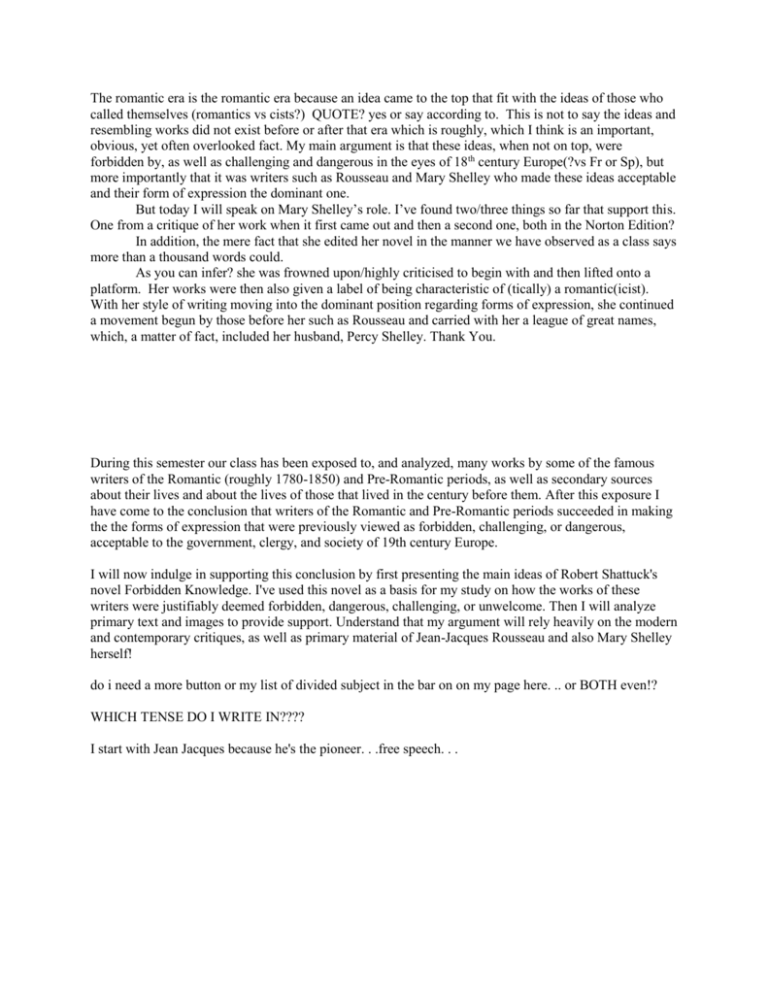
The romantic era is the romantic era because an idea came to the top that fit with the ideas of those who called themselves (romantics vs cists?) QUOTE? yes or say according to. This is not to say the ideas and resembling works did not exist before or after that era which is roughly, which I think is an important, obvious, yet often overlooked fact. My main argument is that these ideas, when not on top, were forbidden by, as well as challenging and dangerous in the eyes of 18th century Europe(?vs Fr or Sp), but more importantly that it was writers such as Rousseau and Mary Shelley who made these ideas acceptable and their form of expression the dominant one. But today I will speak on Mary Shelley’s role. I’ve found two/three things so far that support this. One from a critique of her work when it first came out and then a second one, both in the Norton Edition? In addition, the mere fact that she edited her novel in the manner we have observed as a class says more than a thousand words could. As you can infer? she was frowned upon/highly criticised to begin with and then lifted onto a platform. Her works were then also given a label of being characteristic of (tically) a romantic(icist). With her style of writing moving into the dominant position regarding forms of expression, she continued a movement begun by those before her such as Rousseau and carried with her a league of great names, which, a matter of fact, included her husband, Percy Shelley. Thank You. During this semester our class has been exposed to, and analyzed, many works by some of the famous writers of the Romantic (roughly 1780-1850) and Pre-Romantic periods, as well as secondary sources about their lives and about the lives of those that lived in the century before them. After this exposure I have come to the conclusion that writers of the Romantic and Pre-Romantic periods succeeded in making the the forms of expression that were previously viewed as forbidden, challenging, or dangerous, acceptable to the government, clergy, and society of 19th century Europe. I will now indulge in supporting this conclusion by first presenting the main ideas of Robert Shattuck's novel Forbidden Knowledge. I've used this novel as a basis for my study on how the works of these writers were justifiably deemed forbidden, dangerous, challenging, or unwelcome. Then I will analyze primary text and images to provide support. Understand that my argument will rely heavily on the modern and contemporary critiques, as well as primary material of Jean-Jacques Rousseau and also Mary Shelley herself! do i need a more button or my list of divided subject in the bar on on my page here. .. or BOTH even!? WHICH TENSE DO I WRITE IN???? I start with Jean Jacques because he's the pioneer. . .free speech. . .
